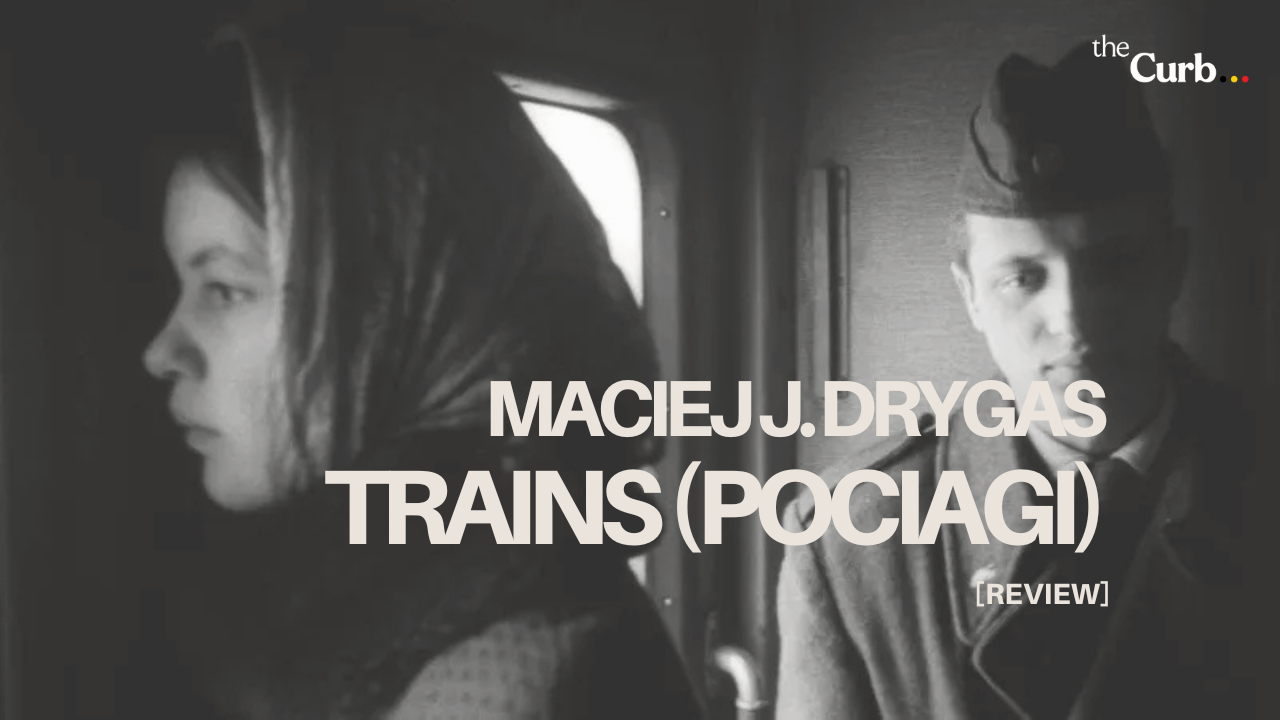Although the legend of mass panic in screenings of The Arrival of a Train at La Ciotat Station, the 50-second film by the Lumière brothers which first screened in 1895 is untrue, it is true that cinema came to life in the same century as the train (although much later). It’s unsurprising that cameras were taken into factories, train stations, on platforms, inside carriages. Both trains and the moving image were symbols of forward momentum — the changing of the European (and American) mentality towards larger and easier to reach horizons.
Maciej J. Drygas, a Polish director, has turned masses of filmed footage into a documentary, or even a moving document, about how in the 20th Century the train was fast became a democratised mode of transportation, an industrial giant, and also an instrument of war.
From the Edwardian period through to post WWII, Trains measures the tracks from peace time to battles. The Western Front and the soldiers of WWI leaving as young men and those who returned physically broken and mentally destroyed by a method of travel that carried humans, munitions, or the trains that themselves became weapons. The tracks destroyed, reshaped, reconfigured, reinforced to be the lynchpin of at least three major conflicts across the 20th Century.
People on a train watching a Chaplin film where the little tramp gets out of a luggage compartment is immediately edited with Chaplin’s famous tours on trains for fans to meet him as an older star. The adoration of Chaplin merges into the train travel of Hitler as the people of Germany stop waving out of windows and start Roman saluting.
It’s unsurprising that a Polish director would spend as much time on trains and their impact on Europe and his country during WWII. Candid shots of Nazis smiling nestle against the locking of compartments on Jews being transported to their deaths. Interspersed are images of children being billeted — tiny humans in overcoats and cardboard tags waved and kissed goodbye by mothers who hoped they would see them again.
Then the liberation by American soldiers where trains held the starved bodies of Holocaust dead piled on top of each other. The trains sent to disputed territory where people waited to be unloaded. The slow and burdened journeys ‘home’ wherever that was for people who survived. But, oh, the images of those reunited with loved ones. Platforms heavy with joy, relief, and pain.
As Britain slips back into its workday peace life where trains go from the London underground all across the country, the USSR is loading tanks ready to claim territory. The final rhythmic image flows closely over tracks crisscrossing in a rhizome of possibility – where will they lead? Who will find a friend, a lover, a home, a diaspora?
Saulius Urbanavicius’ subtle sound design in conjunction with Paweł Szymański’s composition ‘Compartment 2, Car 7’ seamlessly merges with the images and Rafał Listopad‘s astounding (and at times, punishing) editing. The final result is a history of humans via one technological advancement. The proliferation of trains changed the world and ushered in an era of new frontiers and possibilities. But humans conquer frontiers, and train tracks firmed up national borders and the inevitable battles between connected realms.
Trains is a haunting human experience in coal, steam, iron, and the man-made lay lines which connect and destroy.
Director: Maciej J. Drygas
Producer: Vita Zelakeviciute
Writer: Maciej J. Drygas
Composer: Paweł Szymański
Editor: Rafal Listopad
Trains (Pociagi) screens at MIFF on 19 & 23 August 2025. Tickets are available here.

